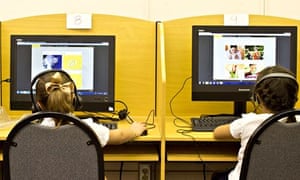Young people live their lives through technology: they are the web generation and they are hungry for more. Our challenge is to channel the natural enthusiasm our pupils have for ICT by using it in their everyday lives and embed it purposefully into the modern foreign languages (MFL) classroom.
There is great value in incorporating new technologies not as a bolt on or reward, but as an integral part of the process. This allows learners to foster the four c's: communication, creativity, collaboration and critical thinking. ICT lets learners easily draw on authentic resources that promote inter-cultural understanding and interact with virtual peers in real non-fabricated contexts.
Publishing students' multimedia outcomes on a blog or wiki gives them a real audience for their work, facilitates peer assessment through commenting and encourages them to raise their standards as a result. Virtual learning environments also offer students distance learning opportunities wherever and whenever they want. Tools like
Padlet,
Popplet,
Linoit and
Pinterest let students collaborate easily with others as a class or in small groups and reflect on learning.
Many MFL departments now run their own Twitter accounts to keep in touch with parents, inform pupils of important notices, for celebrating achievement and for retweeting interesting tweets about language learning such as authentic tweets in the target language or tweets for word/expression of the day. This can raise the profile of the school and help to connect with the wider community –
@allsaintslingo and
@EccoMFL are good current examples of this in action.
Technology lends itself very well to personalised and independent learning where students can work at their own pace, complete interactive exercises rigorously in class or at home and receive immediate feedback. Gaining points for their efforts and being able to compare their scores with their classmates is motivating for them too and adds an element of engaging gamification to their learning.
For any MFL teacher learning vocabulary is essential and
Quizlet is an effective way of memorising and embedding words, phrases and making sound spelling links. Students and teachers can search for existing lists and easily create their own.
Socrative is another free cross-platform tool which allows for classroom voting, instant feedback and formative assessment. You can send students multiple choice, true or false or short answer questions as well self-marking pre-made quizzes. Furthermore, using avatars instead of real pupils' faces may encourage increased participation especially from reluctant learners.
Rehearsing, recording and editing spoken work digitally allows pupils to improve their pronunciation, boost their confidence, extend their speaking and listen back as many times as they like. They can also produce a script individually or collaboratively through a Google doc and import their text into an online teleprompter like
Cue Prompter or the
Visioprompt app so they can record their audio while it scrolls up the screen using Audacity or Voice Record Pro. Some departments employ this technique, as well as
Textivate and
Triptico, to help students learn their controlled assessment pieces.
Video is another powerful vehicle in and out of the languages classroom. Making videos draws upon multiple intelligences, promotes creativity and fosters collaboration. The process gives students ownership of their work which increases engagement. Pupils can produce short films in the target language, create animations using apps such as
Yakit Kids, Puppet Pals and
Explain Everything screencasts, as well as peer assess each other's work. These videos can be easily uploaded and stored in the cloud, used to form part of an e-portfolio over time and are accessible at all times. Other tools used for generating e-portfolios and submitting homework are
Edmodo or
Showbie. The advantage of these tools is that students don't require an email address just a class code.
Using video to flip the classroom is another possibility where learners access the lesson content they would normally learn in class, at home which frees up more class time for practising and accessing higher-order thinking skills. The MFL department at
Wildern School in Hampshire is currently experimenting with flipping and recording their findings on a dedicated blog. Flipping doesn't have to involve creating lots of new material. It can be as simple as sharing existing PowerPoints or screencasts.
To support colleagues who find technology integration challenging, here are some suggestions:
• Lead by example and introduce some of the easier tools or apps to begin with to boost confidence and then share outcomes generated through their use.
• Team-teach a lesson incorporating technology and afterwards discuss the successes and challenges.
• Offer in-house mentoring sessions at lunchtime, after school or during professional development days.
• Nominate student digital leaders who can troubleshoot issues and offer support in class.
• Propose having technology as a performance management target.
• Suggest joining online communities like the TES MFL Forum and MFL resources.
For the current generation of teachers using digital media may be a challenge. The good news is by using social media for support and integrating available tools and apps, connected teachers can access technology's power and potential for language learning. Let's make language classrooms for the web generation more relevant, engaging and accessible.










